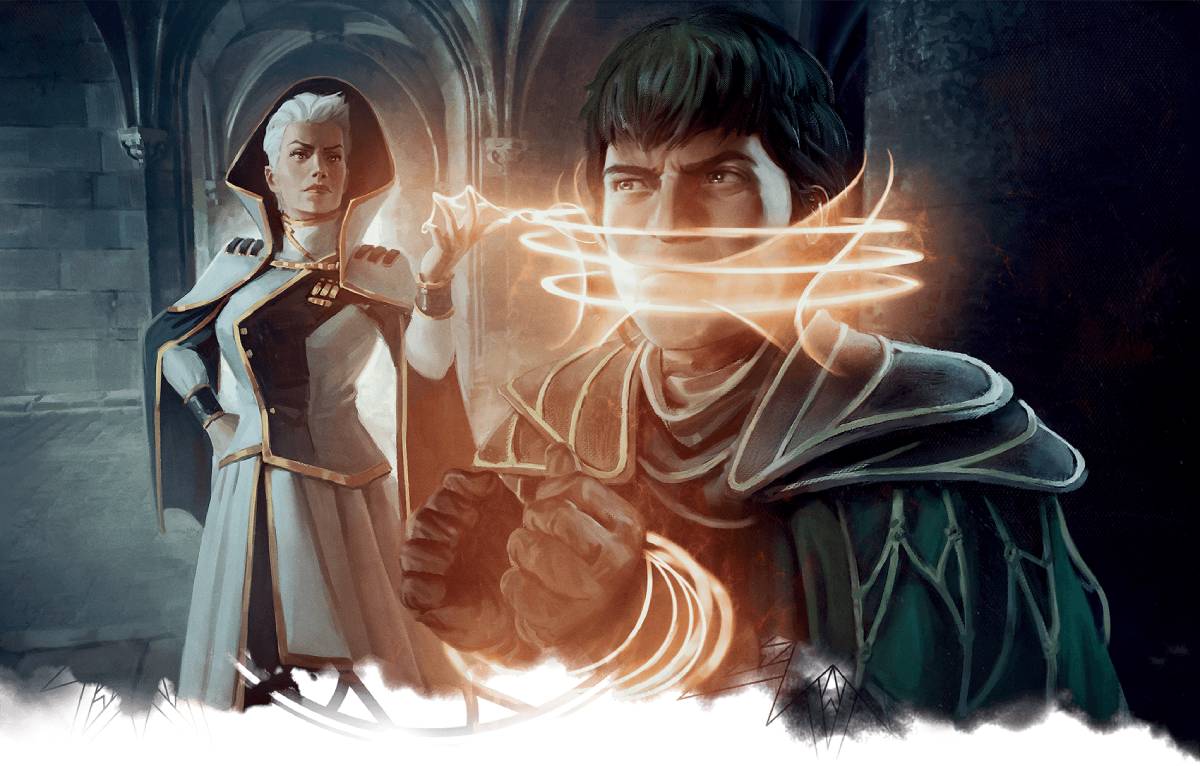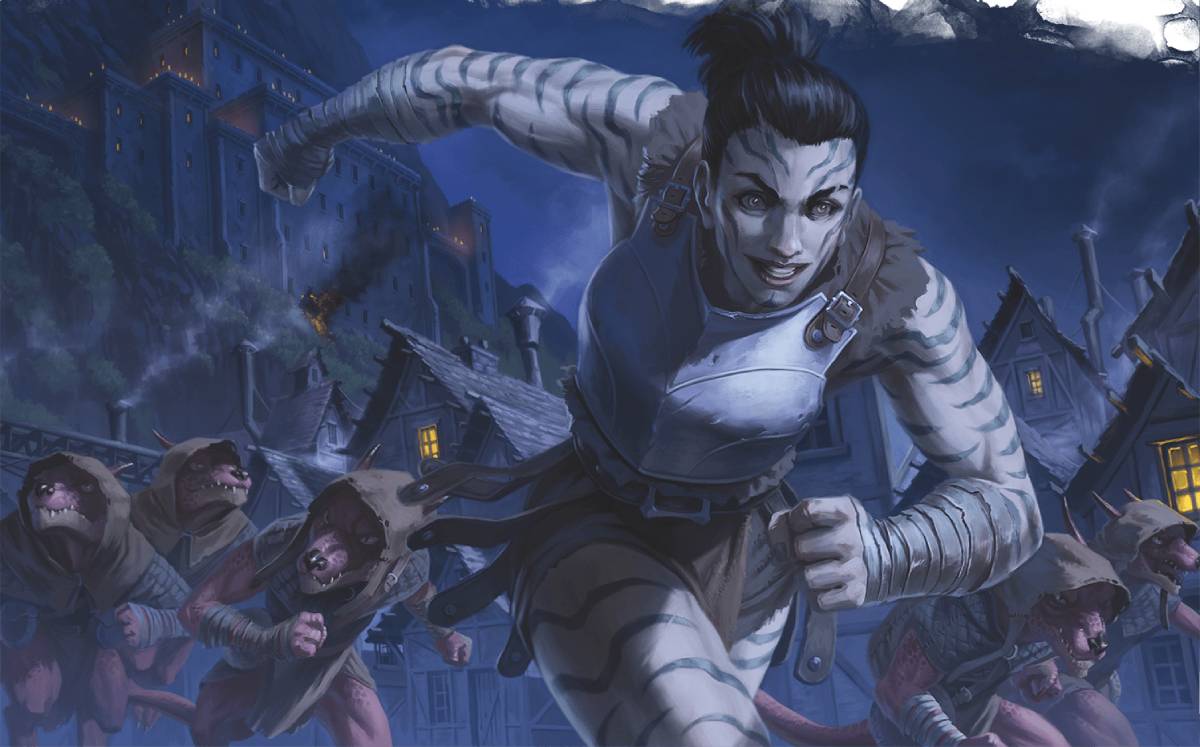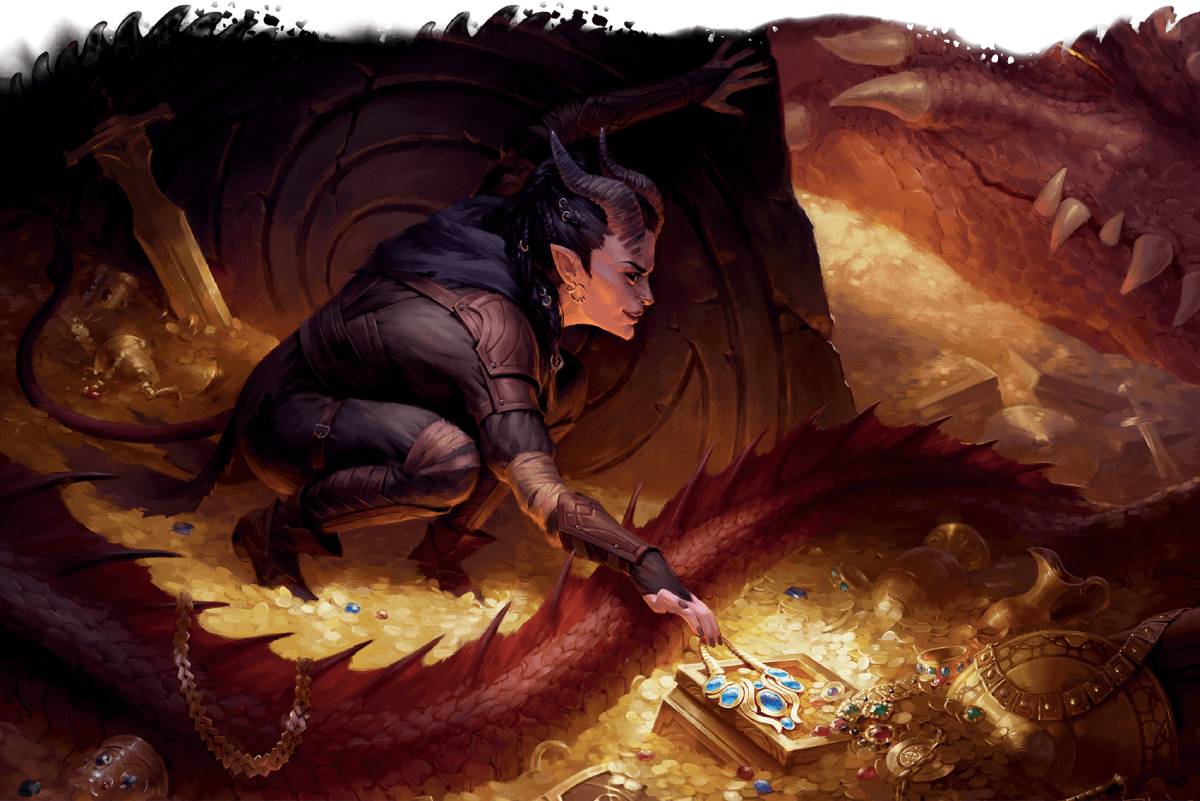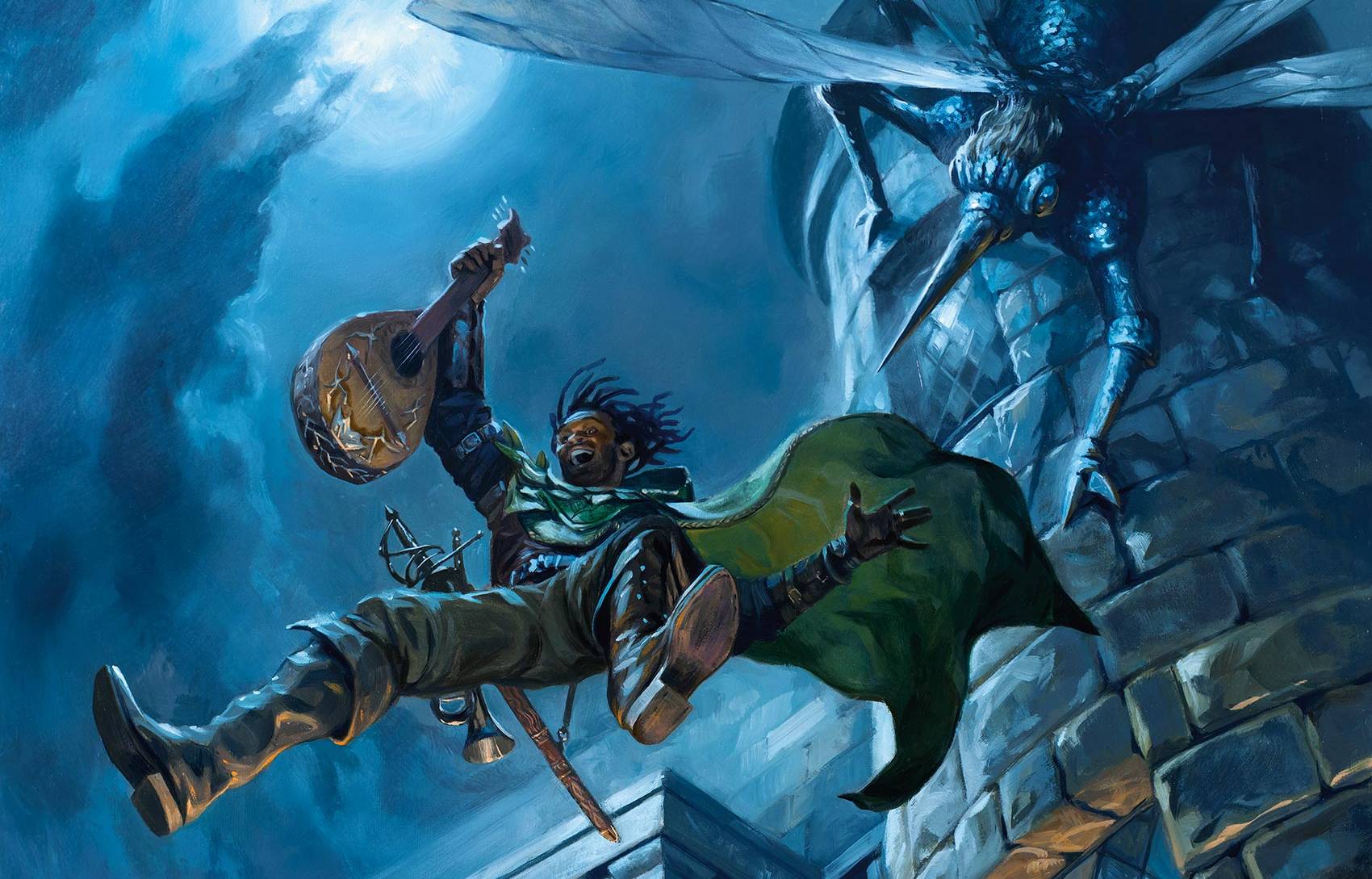
[ad_1]
Unforeseen complications are essential to the heist genre. While classic heists—like the ones in Keys from the Golden Vault—includes a briefing scene that lays out the obstacles the crew will face in detail, those are just the expected problems. For that tense, white-knuckle experience that the best heist fiction captures, you need at least one snag the players did not plan for. For a mission to feel truly impossible, you’ll probably want two or more.
Luckily, each traditional element of the heist contains opportunities to crank up the tension. You can start messing with the players right in the briefing scene. It’s a classic heist moment for your players to experience, but there’s no reason the information they receive has to be 100 percent reliable. Some of it (perhaps a section of a map you hand your players to aid immersion) might be flat-out wrong due to intelligence failure, deception, or even betrayal, ensuring a nasty surprise to come.
Personnel Problems

Disappearing Helpful NPC
While Mission: Impossible (1996) is not strictly a heist movie, it’s close enough to have one of the all-time great movie heist complications (spoiler ahead): Emilio Estevez’s early death. He is presented as a crucial player and then immediately disappears. His teammates were counting on him, and now they are on their own. To produce a similar effect, you can introduce a pivotal NPC teammate in your briefing scene, without whom the chance of failure goes up substantially. Perhaps this individual knows the target location well, is trusted by the guards, or is needed to open a specific door, like Simon in Dungeons & Dragons: Honor Among Thieves. One heist crew staple is the “operative in the van,” who hacks into surveillance and computer systems for the crew. Your indispensable NPC might be a fantasy twist on that character, hanging back from the location in a wagon full of specialty crystal balls with a speaking stone or telepathic bond set up. This NPC might then go silent halfway through the mission, leaving the characters without their guidance.
Presenting an adventure, of course, is different from writing a story. Simply telling your players, “That pivotal NPC is gone,” might not feel fair if you gave them no opportunity to affect the situation. No one wants to feel like they are watching a cut scene in a video game, seeing events unfold with no ability to affect them. Even if you had an unpleasant fate planned for an NPC, if your players take an interest in their safety, they should have a reasonable chance to protect them. In general, any complications you spring on your players should be further opportunities to improvise and make choices, not rails that force their characters into unavoidable places.
The Uncooperative NPC
NPCs have other ways to complicate a heist than disappearing. Someone the characters need might be openly hostile, like the imperial engineer in the payroll heist in Andor. They might require successful Charisma (Persuasion) or Charisma (Intimidation) checks at several points to get them to cooperate. An NPC ally might decide they want more money or they bail. They could even be planning to betray the party at the last minute, leaving them locked in the vault they meant to plunder.
Obfuscating Opposition

Beef Up Security
Director Alfred Hitchcock called the object of desire in any story the “MacGuffin.” While it’s debatable whether every story has a MacGuffin, every heist story certainly does, and it won’t feel like a heist unless there are some formidable guards around it.
Stat blocks aren’t your only tool to make an enemy frightening. Campaign lore can also be effective. One mercenary company might be known throughout your world as the security service of choice for kings, councilors, and great merchant houses. Back up their reputation with clever tactics, darkvision, blink dogs as trained pets, horns of silent alarm, boots of elvenkind, and the occasional warlock with misty step. Show them in action several adventures before the heist, maybe even as allies of the characters, and have them make a memorable impression. Then, when they suddenly appear on the opposing side, your players will be second-guessing their chances before the first initiative roll.
The guards laid out in the briefing don’t have to be the ones your players actually encounter, either. Security could have received an upgrade since then, or there could be a third party to contend with (see the Rival Crews section below).
Pacifist Run
The MacGuffin’s guardians need not even be evil to pose challenges. They might be good-aligned but be misguided in their actions, which could pose an interesting challenge to avoid the use of deadly force. A “do no harm” rule could even be enforced through a magical ward on the location, like on a building residing on the good-aligned Outer Plane where the Golden Vault has its headquarters. Any action with the intent to injure could result in the perpetrator being teleported outside the building or even shunted off into the Astral Plane. Make sure there is indeed a non-violent way for the characters to complete the mission if you choose this complication.
Rival Crews
Guards aren’t the only suitable antagonists the genre provides. A rival crew of would-be thieves is a heist staple, but you can always give it a twist. The party’s competitors don’t have to disrupt the heist in progress. They can wait until the characters have done all the work and attack them when they are battered and tired. They might even try to steal the MacGuffin while the party sleeps or the next day when they try to sell it.
Rival Your Party
If you’re looking for help developing a foil for your party, Keys from the Golden Vault provides stat blocks and some advice on running crews that will rival your party’s mission. Nothing motivates players like some healthy competition!
Vexing Vaults

Rethink Your Vaults
The vault the MacGuffin rests within can provide any number of complications. It might be aboard a spelljamming ship built to blend in with the building around it. The party might emerge with their prize only to learn that they have just pulled away from the planet, and a hostile crew now stands between them and a return to the surface. Alternately, the vault might sit within an antimagic field where no spells can work. It might only open if two keys are turned simultaneously. One key could require great strength to turn, while the other requires the operator to be Tiny sized. The vault might not even be a vault at all, but a Huge-sized, giant mimic with a boosted CR to match its increased size.
Surprise Vault Security
Try to subvert your players’ expectations. If they’ll be looking for the alarm spell on the vault door, install a biological alarm. Shriekers are described as Medium size in the Monster Manual but might have other varieties. Detect magic is useless against a tiny mushroom growing near the vault, ready to scream at the slightest disturbance.
Minding The MacGuffin

Which Item Is the MacGuffin?
The complications need not end once the characters open the vault, either. Nothing says their prize must be easily identifiable or removable. The MacGuffin could be hidden in a pile of identical objects. The party could open the vault expecting a ring only to find six barrels filled to the brim with identical rings, which must be inspected individually for an identifying mark.
Cursed MacGuffin
The MacGuffin might be a cursed magic item that requires attunement to remove from the premises. Perhaps the curse steadily lowers an attribute or gradually increases exhaustion. The wielder will require a remove curse spell to survive, but that must wait until after delivery. The MacGuffin might be a hostile construct instead, like an animated staff of frost that must be defeated before the party can remove it from the premises.
The MacGuffin doesn’t need to be explicitly cursed to make escaping with it a nightmare for whoever steals it. Various spell effects could be laid upon it that make transportation difficult. Once removed from the vault, it might magically grow or shrink by a certain amount every round. It could be trapped inside an eversmoking bottle that leaves a bright cloudy trail for pursuers. It could even be enchanted to look like every passerby’s most prized possession. “That’s me mum’s ashes!” a citizen might shout as they join the angry mob behind the characters.
Inconvenient Cargo
A fragile MacGuffin could be just as problematic as a hostile one. What if the object of the characters’ desire was made by pixies in the Feywild, and will crumble if touched? They must find a way to remove it without physical contact or fail their mission. Alternatively, the MacGuffin might be of enormous mass, held up by an immovable rod, with no obvious way to extract it without the rod’s magic.
Let the Dice Fall Where They May
Any elements that make up the classic heist can be turned into a source of exasperation for your players’ crew. Dungeon Masters will find many more clever ideas throughout the adventures in Keys from the Golden Vault.
Whatever complications you throw at your players, make sure your heist is a genuine challenge to pull off. Your players will want to feel that any success was well-earned. On the other hand, if they make poor decisions or the dice are simply not with them, don’t hesitate to let them blow it. A botched heist is not something to look on with anxiety like a total party kill. The “job that goes wrong” is integral to the genre. Should the characters find themselves disarmed, surrounded, and forced to bargain with an enemy from a weak position, well, that sounds like the perfect start to another heist.
Comedian and writer John Roy (@johnroycomic) has appeared on Conan and The Tonight Show and written for Vulture and Dragon Plus. He is the co-host of the comedy/war gaming podcast Legends of the Painty Men. His albums can be found on Apple Music and Spotify. He splits his time between Los Angeles and the Free City of Greyhawk.
[ad_2]





